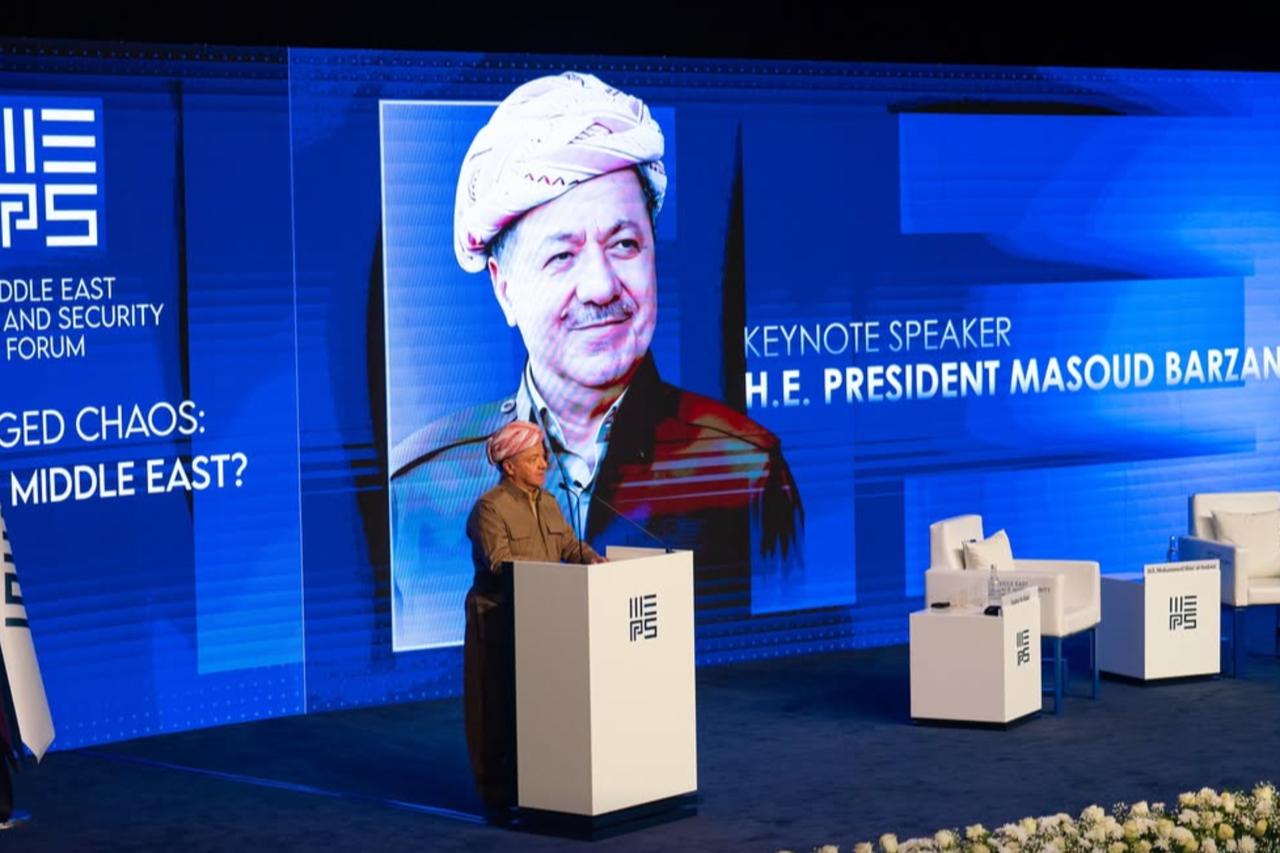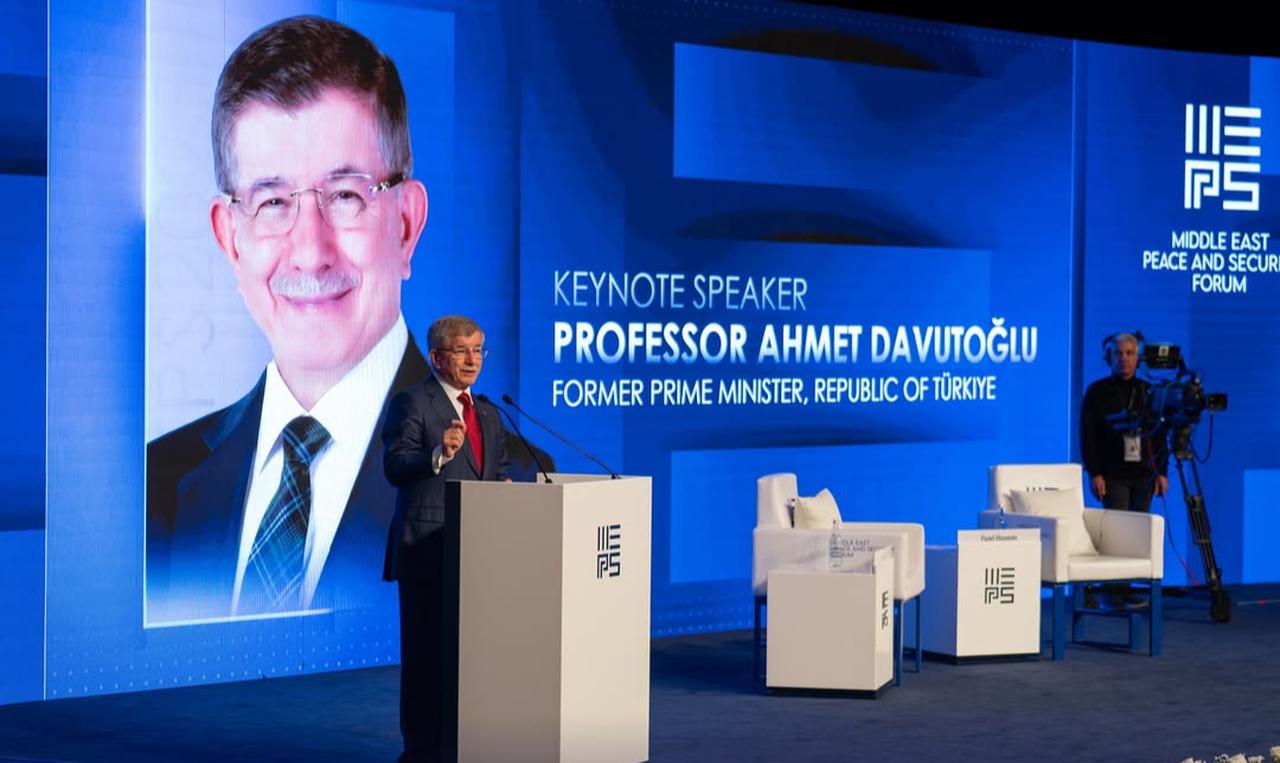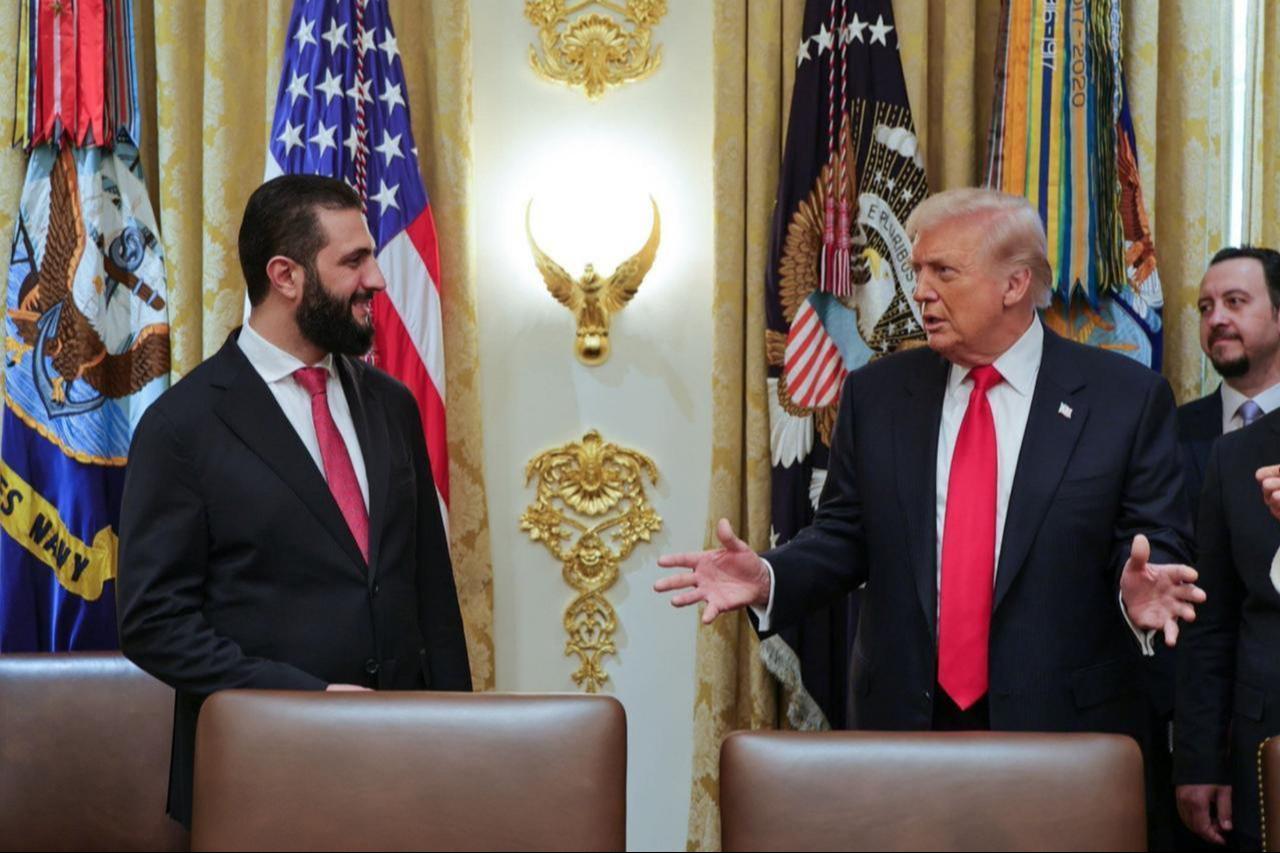
The 2025 conference at the American University of Duhok brought together an unusually broad range of regional and international actors, drawing political figures, analysts, and officials from multiple countries.
Among them was a varied delegation from Türkiye, reflecting the event’s perceived strategic value. The meeting was financially supported by Iraq’s Kurdistan Regional Government (KRG), whose senior leadership, including Prime Minister Masrour Barzani and the KRG protocol, attended sessions from the front rows.
One of the most striking developments was the participation of the wanted ringleader of the PKK-affiliated SDF, Mazloum Abdi, and the group’s member Ilham Ahmed. Both appeared in civilian attire, but Abdi’s decision to deliver formal remarks drew particular attention. For many attendees, this signaled both confidence and a calibrated attempt to project political legitimacy at a sensitive moment for Syria and northern Iraq.
However, the early departure of Turkish guests, including former Prime Minister of Türkiye Ahmet Davutoglu and some members of the ruling AK Party, from the summit after Abdi's participation was announced, highlighted Türkiye's foreign policy red lines and political limits.
The conference also coincided with Iraq’s national elections, allowing Prime Minister Mohammed Shia’ al-Sudani’s speech to serve as a barometer of Baghdad’s post-election posture. His participation reinforced the perception that the gathering was not merely academic but part of a larger regional conversation about future governance, security arrangements, and influence.

In his speech, Mazloum Abdi emphasized the need for decentralization in Syria, arguing that a centralized, unitary system is no longer viable after years of conflict amid ongoing negotiations.
Abdi's speech openly contradicted Turkish and U.S. foreign policy priorities in Syria. Receiving Syria's President Ahmad al-Sharaa, the first Syrian president visiting the White House, Trump gave him international legitimacy at a time when Syria's unification efforts were strained due to the hurdles created by the SDF.
SDF is seen as the last obstacle to the unification of Syria.
Separately, Ilham Ahmed was asked why negotiations between the SDF and Damascus have repeatedly stalled. While she avoided offering a definitive explanation, the underlying implication was clear: a deep and persistent divergence exists between the two sides’ long-term visions for Syria. This gap has prevented any durable arrangement despite months of intermittent talks.
For regional observers, these remarks reinforced the sense that Ankara’s own calculations in the region remain constrained.
As long as the SDF-Damascus channel remains frozen, the broader political pathway that could inform Türkiye’s approach to Kurdish actors and the legacy of the terrorist PKK’s imprisoned founder, Ocalan-initiated process remains similarly blocked.
The Turkish delegation included former Prime Minister Ahmet Davutoglu, AK Party members representing Türkiye’s conservative Kurds, and delegates from HUDA-PAR, the small Kurdish nationalist-conservative party in the Turkish assembly.
Their attendance initially signaled Ankara’s willingness to observe developments among Kurdish actors in both Iraq and Syria. However, Davutoglu’s sudden departure, followed by AK Party lawmakers, after it became public that Mazloum Abdi would join the next day, introduced a layer of political ambiguity.
Before leaving, Davutoglu delivered remarks arguing that Türkiye, rather than France, should mediate any talks between the SDF and the Syrian regime. Hours later, the KRG’s announcement confirming Abdi’s attendance sharpened the perception that the timing carried political significance. Although Davutoglu later stated that he had a pre-scheduled meeting in Erbil, the sequence of events was widely interpreted as a message aligned with Ankara’s diplomatic boundaries.
The hesitation reflects Türkiye’s long-standing sensitivities regarding the SDF and the unresolved status of the Syrian conflict within Ankara’s broader approach to the PKK and the Ocalan process. Despite shifting regional priorities, appearing in the same frame as Abdi remains a political red line in Turkish domestic and foreign policy circles.
One of the most striking features of the Duhok conference was the near-absence of discussion about the United States. Even though former American officials attended the workshop sessions, the level of interest in U.S. policy was minimal.
For many participants, the assumption of decreasing U.S. engagement has become normalized. Regional actors are recalibrating their strategies accordingly, focusing on building local mechanisms and bilateral alignments rather than relying on American guarantees. The idea that neither Europe nor the United States can be depended upon in shaping future regional order was a recurring theme of this year’s MEPS Forum.
By the end of the conference, a consensus had emerged among attendees: the Middle East is moving into a phase in which states must operate under the expectation of limited Western involvement. This shift is prompting governments to design policies that assume ongoing American disengagement and to seek stability through regional arrangements rather than external sponsorship.

Officials from the Kurdish National Council (ENKS) were also among the invited guests, including ENKS leader Mihemed Ismail. Their participation underscored the attempt to bring together rival Kurdish political currents that have been divided since the early years of the Syrian conflict.
Founded in 2011, ENKS aligned itself with the broader Syrian opposition and maintained close ties with the Kurdistan Democratic Party (KDP) in Iraq. This positioning placed it at odds with actors who favored the PYD/PKK-led governance model in northern Syria.
When Syrian government forces withdrew from Kurdish-majority areas in 2012, the PYD quickly moved to consolidate control over key towns. What began as a strategic power vacuum soon hardened into a centralized security structure dominated by PYD-linked groups.
Over the following years, political pluralism in these areas deteriorated. ENKS offices were closed, opposition figures were detained, and local councils functioned largely as instruments of PYD authority.
Despite numerous reports documenting human rights abuses, international actors overwhelmingly favored the SDF as the “credible” or “effective” Kurdish partner, sidelining ENKS in diplomatic and military channels.
As a result, ENKS spent much of the past decade operating from exile, often dismissed by rivals as aligned with Ankara or the KDP, which reinforced the political marginalization they sought to overcome.